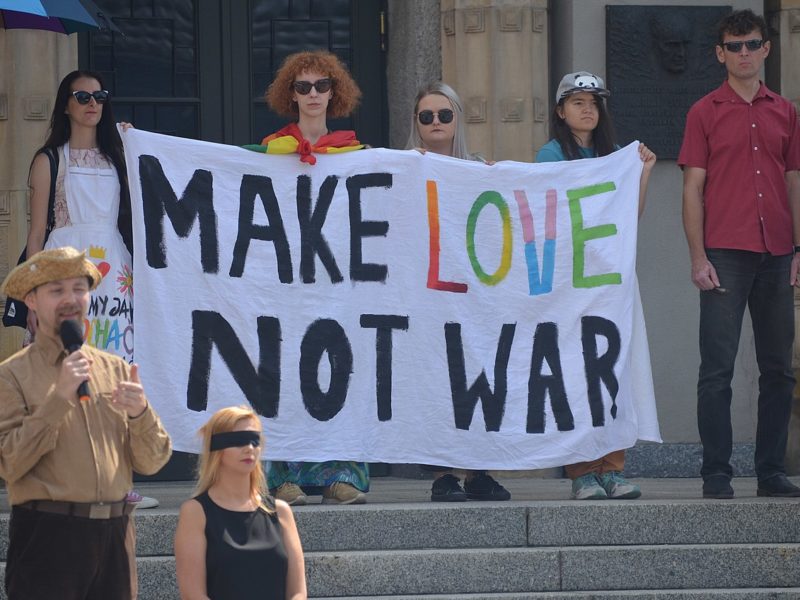Guest post by Tyler Kustra
The conjecture that being single drives young men to commit political violence is compelling. It has been presented in academic articles and the popular press. It’s been discussed in classified diplomatic cables, unclassified strategic planning documents, and reports to Congress.
The idea is intuitive—and, one might note, heteronormative. Young men face a choice between kissing and killing. The realities of life as a terrorist or a guerilla mean that they cannot do both. For a young man with a wife, the choice is obvious: he would rather stay home with his bride than abandon her to go and become a rebel or a terrorist. Young men without wives do not face the same quandary; they have no partners to leave behind. In fact, they may benefit more from participating in political violence than married men, in so far as doing so increases their economic and social capital, thereby increasing their chances of finding a mate.
Observational studies of individual terrorists and guerillas support this theory. They are almost always single. This applies whether we are talking about Palestinian suicide bombers today or Chinese rebels 172 years ago.
The implications are substantial. Across Asia, from India to China, there are approximately 1.10 young men for every young woman, thereby dooming millions of men to go through life alone without the possibility of finding a heterosexual partner. If being single caused young men to commit political violence, then Asia should be a powder keg ready to explode with terrorism and civil war. Men in the Muslim world tend to marry much later in life. Could this provide an explanation for the higher levels of political violence in Islamic countries? And if being single causes young men to engage in civil war and terrorism, might this provide a novel solution to the problem of political violence: finding these young men wives.
Yet does having a surfeit of single young men increase the level of political violence in a country? My paper Make Love, Not War investigates just that. We already know that an increase in the proportion of young men in a country increases the probability of civil war and terrorism, but does the marital status of these young men make any difference? To test this, I ask if an additional single young man causes a greater increase in the probability of civil war and terrorism than an additional married young man.
The results are surprising: there is no statistical difference between an additional single young man and an additional married young man. The results hold regardless of whether I consider civil war or terrorism.
This has substantial implications for international relations. It means that the abundance of bachelors in Asia will not turn the continent into a powder keg. It means that the higher levels of terrorism and civil war in predominately Muslim countries cannot be explained by marriage rates. And it means that political violence cannot be prevented by finding single young men wives (an untenable solution regardless, since it treats women as objects to placate the desires of violent men).
It also cries out for an explanation. How can it be that almost all terrorists and guerillas are single while having more single young men has the same effect on the probability of political violence as having more married young men does?
If participating in political violence caused young men to be single, this would explain why almost all terrorists and guerillas are single. This could be because women are reluctant to date a man who is on the run from the authorities and risking his life fighting them. Meanwhile, men who are considering going off to fight might choose to remain single to prevent their potential wives from going through the pain of being abandoned and widowed.
Moreover, since terrorists and guerillas make up only a tiny fraction of a country’s population, their marital status is unlikely to affect national-level statistics. This would explain the lack of a country-level relationship and resolve the paradox of observing an individual-level relationship between marital status and participation in political violence but not finding a country-level association. And it would mean that “Make Love, Not War” is not an effective slogan.
Tyler Kustra is an assistant professor of politics and international relations at the University of Nottingham.





